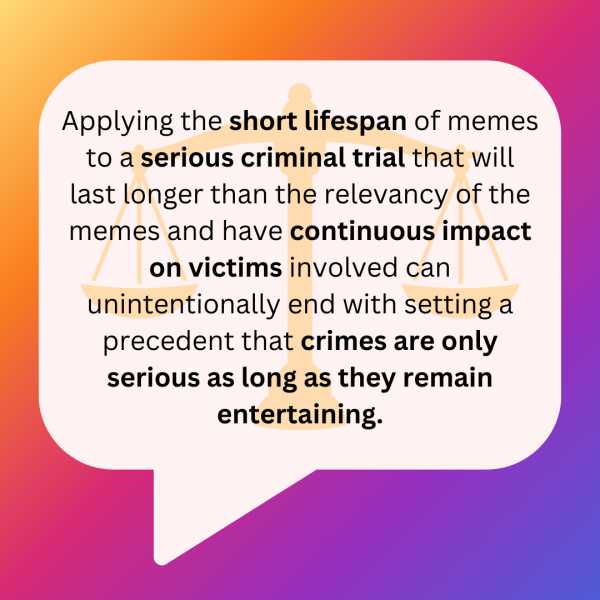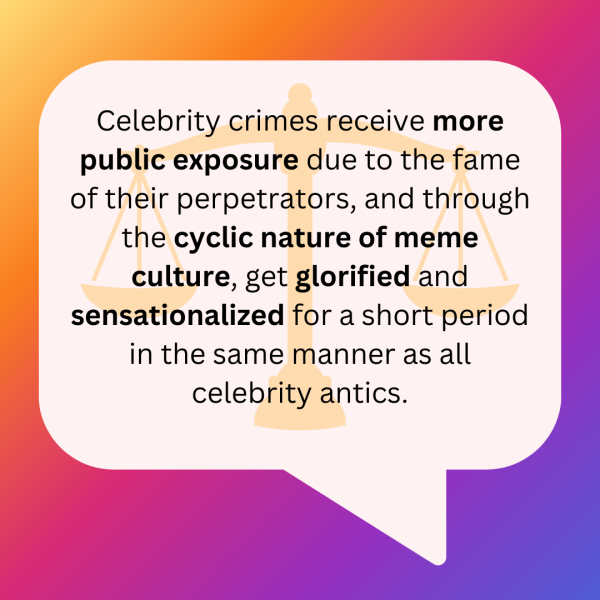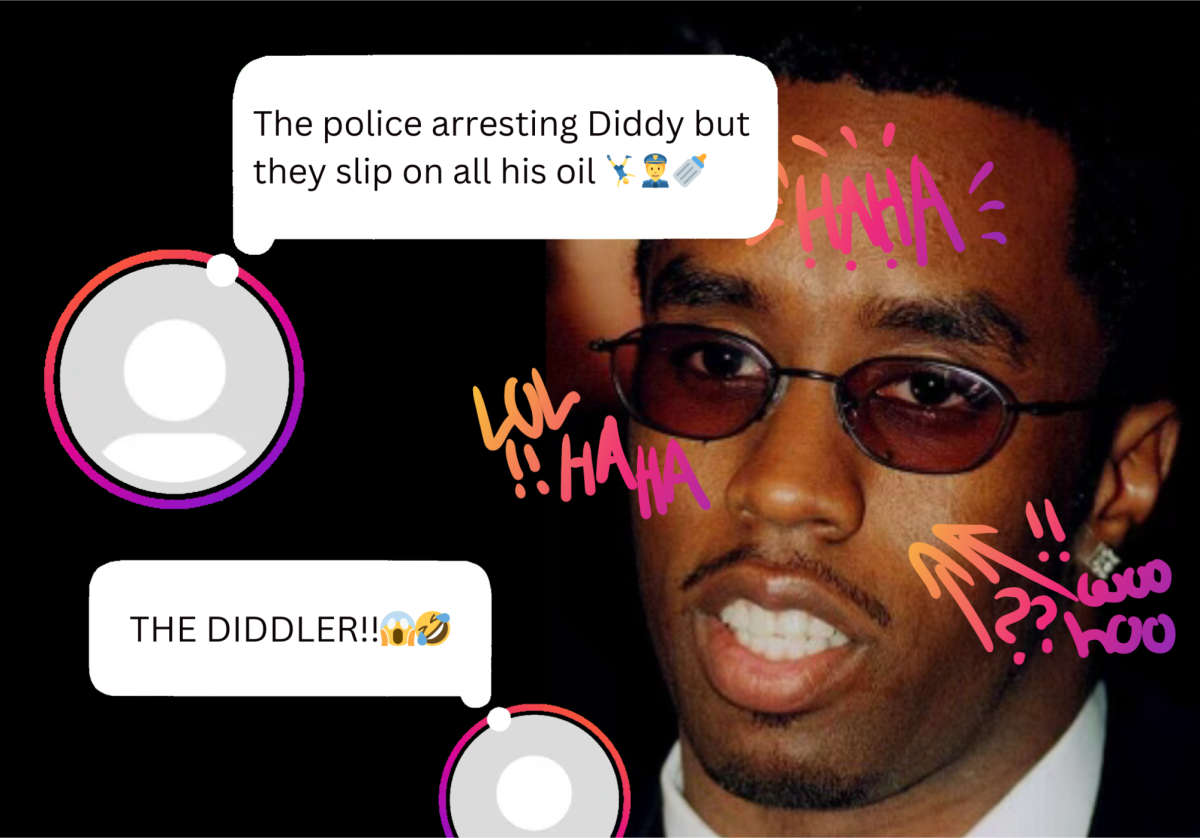“The Diddler” is a recent nickname circulating social media given to American rapper, record producer and record executive Sean John Combs, better known as P. Diddy — an established figure in the American music industry since the 1990s. His recent fall from favor following accusations of human trafficking, racketeering and sexual assault has been a prominent topic of internet discussion, generating a diverse array of memes and TikToks ranging from informative analyses of the incidents to “dark humor” about his criminal activity.
Just as the humorous title “Diddler” makes one think of a comical villain, so do the memes. The lighthearted context of the memes turn Combs into a parody of his serious crimes and takes away from the gravity of his three criminal charges. Instead of focusing on the actual crimes, details such as Combs’ alleged collection of over 1,000 bottles of oil for sexual crimes have been turned into jokes due to their unbelievable nature.
The internet’s response to Combs’ crimes echoes a larger trend of trivializing crimes committed by celebrities through memes and comedy. Another infamous example of this trivialization is the internet’s response to the Amber Heard and Johnny Depp trial in 2022, a defamation trial between the two celebrities, where memes focusing on Amber Heard’s ridiculous testimonial statements like “My dog stepped on a bee” took away from accusations against her of defamation and domestic violence.

The nature of memes is to be satirical — crimes included, even though crimes should be the opposite of humorous. Due to the unserious tone of these memes, celebrity crime is downplayed and reduced to a trend that gradually fades from the public’s mind, perhaps quicker than they should. However, crimes are not things that wane in the minds of the victims — crimes follow victims, often leading to conditions like PTSD and trauma. In this way, they shouldn’t be allowed to fade from the eyes of the general public, either. Applying the short lifespan of memes to a serious criminal trial that will last longer than the relevancy of the memes and have continuous impact on victims involved can unintentionally end with setting a precedent that crimes are only serious as long as they remain entertaining.
At MVHS, 84.6% of students keep up with memes about crimes committed by celebrities. Students who see these widespread memes may interpret them as everyday humor, and those who are less informed about the seriousness of the depicted crimes get an impression that it is a laughing matter based on the way the topics are discussed amongst classmates. This is especially worrying seeing as some of the accused crimes include minors as victims.
The sensationalized nature of internet memes also creates a breeding ground for misinformation. The already ridiculous memes encourage people to speculate and build upon them in the name of humor, all to garner a funny reaction and boost engagement. The absurd claims and exaggerations bounce off of and build upon each other until the truth becomes lost. For example, regarding Sean “Diddy” Combs’ case, people online speculate the involvement of Beyoncé with Combs’ crimes and have entertained the theory that Combs murdered Michael Jackson — none based on concrete fact, and distracting from the matter at hand: Combs’ criminal charges.

Through meme culture, celebrity crimes get sensationalized, creating a harmful precedent of discussing crimes as humor or gossip in a way that disrespects the victims. It is important for us to understand the crimes discussed in memes and take nuanced perspectives on them so we can maintain a serious tone around these events for the sake of respecting the people impacted. The internet’s response to celebrity crime is crucial in the perception of these crimes by the general public, and turning them into jokes turns the message they send and the victims of the crimes into the punchline.












